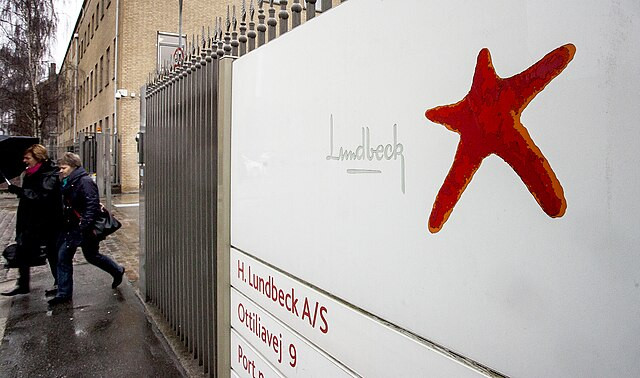Danish pharmaceutical giant H. Lundbeck A/S has struck a $2.6 billion deal to acquire Longboard Pharmaceuticals, a U.S.-based biotech firm specializing in treatments for neurological conditions. The acquisition, expected to close in the fourth quarter of 2024, is a strategic move by Lundbeck to expand its portfolio in the lucrative but competitive market for epilepsy drugs. Shares of Longboard surged by nearly 44% in pre-market trading following the announcement.
Under the terms of the agreement, Lundbeck will purchase Longboard's shares at $60 each, representing a significant 54.2% premium over Longboard's last closing price of $38.90. The acquisition is particularly aimed at gaining access to Longboard's lead drug candidate, bexicaserin, which is currently in late-stage development for treating seizures associated with a group of severe early-childhood epilepsies known as Developmental and Epileptic Encephalopathies (DEEs).
Lundbeck is positioning itself to capture a potentially large market for DEEs, a rare but debilitating set of epileptic disorders that affect around 220,000 patients in the United States alone. The Danish company anticipates launching bexicaserin in 2028, with projected peak global sales of the drug estimated between $1.5 billion and $2 billion.
"With this acquisition, Lundbeck will enhance its focus on neuro-rare diseases and further strengthen its portfolio," Lundbeck CEO Deborah Dunsire said during a press conference. "Bexicaserin's promising data and its designation as a Breakthrough Therapy by the U.S. Food and Drug Administration (FDA) puts us in a strong position to address a significant unmet need in the treatment of epilepsy."
Bexicaserin is currently undergoing a global Phase 3 clinical trial and has already secured both Breakthrough Therapy and Orphan Drug designations from the FDA, two critical markers that could accelerate its development and regulatory approval. Longboard, headquartered in San Diego, has built a reputation in the biotech industry for focusing on innovative treatments for epilepsy and other neurological conditions. Its unique basket trial approach, which targets multiple forms of DEEs, has garnered attention for its potential to address a wide range of epilepsy disorders, expanding its market reach beyond more well-known conditions like Dravet syndrome and Lennox-Gastaut syndrome.
Longboard's Chairman, Philip Frost, expressed optimism about the future of the partnership. "We are excited to join forces with Lundbeck, a company that shares our mission of improving the lives of patients with neurological conditions. This acquisition will allow us to leverage Lundbeck's global reach and resources to bring bexicaserin to patients as quickly as possible," Frost said.
The deal has been unanimously approved by the boards of directors at both companies, with analysts viewing the acquisition as a logical step for Lundbeck. Industry experts have praised Lundbeck's strategy to acquire Longboard, particularly for its focus on a de-risked asset like bexicaserin, which has shown promising early results. The acquisition price of $60 per share, analysts say, is consistent with premiums paid for similar biotech companies with pre-phase III assets.
However, despite the positive outlook, Longboard's stock was downgraded from a "Buy" to "Neutral" by B. Riley analysts following the acquisition announcement. The analysts cited the elevated price target as a reason for the downgrade but acknowledged that the acquisition would be beneficial in the long term. The price target for Longboard shares was increased from $45 to $60, reflecting the acquisition's premium.
For Lundbeck, the deal represents a key opportunity to diversify and expand its portfolio beyond its current offerings for neurological conditions such as Parkinson's disease, Alzheimer's, and migraines. The company has been actively seeking to grow its footprint in the epilepsy space, an area where there remains significant unmet need despite advancements in treatment.





